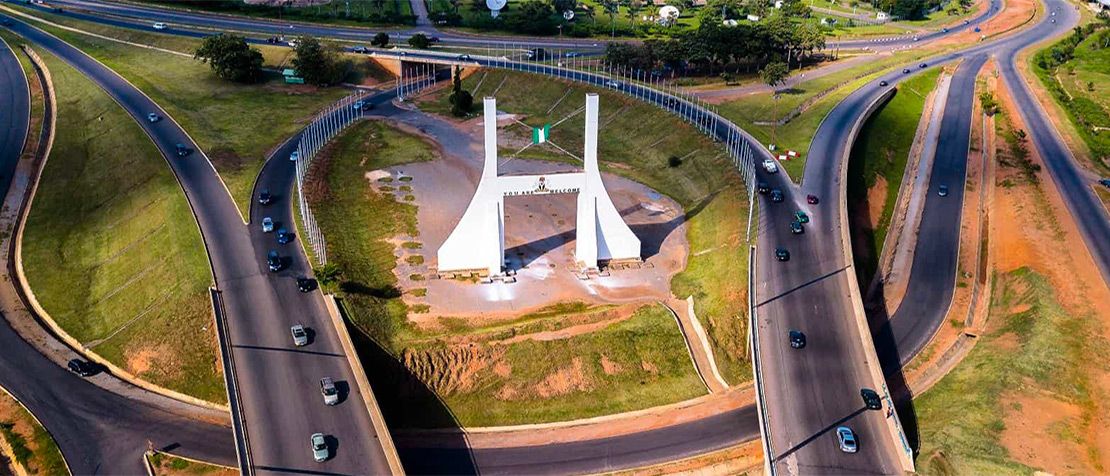
IoT and smart cities: Why Africa is scaling-up its participation in ITU standardization
Africa’s actions in the interests of environmental sustainability are in focus this week in Abuja, Nigeria, at the first ITU ‘Digital African Week’, hosted by the Nigerian Communications Commission.
In discussing Africa’s digital transformation, the week’s series of events will address an important question: How could international standards support African countries in capitalizing on frontier technologies in fields such as Artificial Intelligence, blockchain, 5G (IMT-2020) and the Internet of Things (IoT)?
This question is top of mind for Bako Wakil, Chair of the African Regional Group within ITU-T Study Group 20 (SG20), the ITU standardization expert group for ‘IoT and smart cities’.
Wakil is the Director of ‘technical standards and network integrity’ at Nigeria’s ICT regulator – the Nigerian Communications Commission – where he is responsible for issues including Quality of Service, equipment type approval, and the management of national numbering resources.
Wakil has taken on an expanded set of responsibilities at the international level.
“As the Chair of the SG20 Regional Group for Africa, my interest is that of the African continent as a whole,” highlights Wakil.
“Participating in ITU standardization gives us the opportunity not only to improve our understanding of new technologies and their functionalities, but also to domesticate certain ITU standards in our national policies and programmes,” says Wakil.
With greater insight and influence with respect to the development of ITU standards, African countries are better positioned to tailor these standards to their national contexts, explains Wakil.
RELATED: Learn more about ITU’s Bridging the Standardization Gap programme
“We are able to work out regulations and guidelines surrounding ITU standards that address the specifics of our domestic operations,” he says.
Smart Sustainable Nigeria: Opportunities and Challenges
“Nigeria’s smart city initiatives aim to reduce greenhouse gas emissions, improve energy efficiency, and automate the provision of government services in fields such as health, education and transportation,” says Wakil.
But Wakil highlights an often overlooked barrier to the success of smart city projects in many developing countries.
“We lack efficient and constant power supply,” says Wakil. “Uninterrupted power supply is essential to any smart activity.”
Home to some 200 million people, Nigeria is Africa’s most populous country and its population is expected to grow to close to 400 million by 2050.
RELATED: ITU Digital African Week to discuss frontier technologies for environmental sustainability
Lagos, with a population of around 14 million, counts itself among the world’s 33 ‘megacities’ (cities with populations exceeding 10 million).
Speaking of Nigeria’s efforts to narrow its urban-rural connectivity divide, Wakil makes an interesting connection between rural connectivity and environmental sustainability.
“We have identified over 200 access gaps within Nigeria. We are making every effort to bridge those gaps, and this is where energy efficiency becomes critical.”
To reach low-income people in rural areas, says Wakil, ICT devices and supporting infrastructure need to be energy efficient and low cost.
“I think there is a connection and correlation between reducing climate change effects and rural connectivity,” says Wakil.
Advice to other African ICT innovators
Regional Groups within ITU-T Study Groups make a key contribution to the inclusivity of the ITU standardization platform. Enabling ITU members to arrange meetings close to home, these groups assist in ensuring that ITU standards speak to the needs of all regions.
“Countries are able to have deeper conversations around issues germane to their respective regions,” highlights Wakil.
This translates into greater influence over ITU’s development of international standards.
“We are able to inform ITU of our particular requirements, recognizing that not all regions are on the same level when it comes to economic development and capacity.”
Meetings of Regional Groups also deliver clear cost efficiencies by limiting the distances that ITU delegates are required to travel.
“Meetings at the regional level ultimately afford more people the opportunity to participate in ITU activities.”
Wakil has a clear call to action for other ICT innovators in Africa: “I encourage you to take advantage of the presence of ITU’s regional groups for Africa. It’s an opportunity to become an active participant in ITU activities; an opportunity to learn, to benchmark your ICT initiatives against others, and to ensure that activities at the international level lead to impact at the national and regional level.”
The SG20 Regional Group for Africa meets this week in Abuja, 27-29 August, in conjunction with ITU Digital African Week.

Engr. Bako Wakil is the Director of Technical Standards and Network Integrity at the Nigerian Communications Commission, an independent regulator of the telecom industry in Nigeria. He has 30 years’ experience in telecom services management, operations and maintenance. He has diverse experience in satellite, terrestrial and diplomatic communications operations and management.
